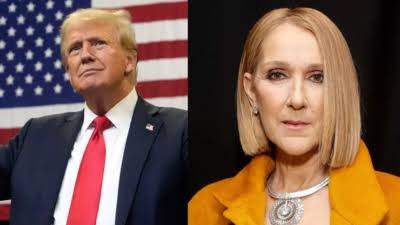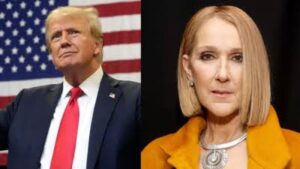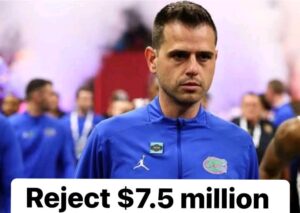
Celine Dion moves forward from this controversy, it is clear that she remains committed to preserving the integrity and message of her music.

Celine Dion has expressed her dismay and strong disapproval after discovering that her iconic ballad, “My Heart Will Go On,” was used at a recent rally held by former President Donald Trump. Dion, known for her powerful voice and emotional performances, found herself at the center of controversy when the song was played during a political event she neither supports nor condones. The use of her song at the rally has sparked a significant backlash, with Dion clarifying her stance and denouncing the association with Trump’s political activities.
“My Heart Will Go On,” released in 1997, is one of Dion’s most celebrated hits. The song, which served as the theme for the blockbuster film *Titanic*, has been embraced worldwide for its sweeping melody and poignant lyrics. It became a defining piece of Dion’s career, earning her a Grammy Award and solidifying her status as a global music icon. The song’s association with romance and epic storytelling contrasts sharply with the political environment of Trump’s rallies, creating a dissonance that has led Dion to speak out.
Dion’s reaction to the use of her song at the rally was swift and direct. In a public statement, she expressed her profound disappointment and frustration. “I was shocked and deeply troubled to learn that ‘My Heart Will Go On’ was used at a political rally,” Dion said. “The song has always been about love and hope, and it is heartbreaking to see it used in a context that does not align with its message or my values.” Dion’s comments reflect a broader concern among artists about the use of their work in political or ideological contexts that may misrepresent their intentions.
The controversy surrounding Dion’s song highlights a growing trend where artists are increasingly vocal about the use of their music in political settings. Many musicians are uncomfortable with having their work associated with political figures or movements, especially when the message or agenda of the event contrasts with the artist’s personal beliefs. This issue has become more pronounced in recent years, as political rallies and events often feature popular songs to evoke emotional responses from the audience.
For Dion, the use of “My Heart Will Go On” at a Trump rally is particularly jarring given the song’s enduring message of love and unity. The rally, which featured a variety of political speeches and endorsements, was perceived by many as polarizing, contrasting sharply with the song’s themes of romance and togetherness. Dion’s response underscores her commitment to ensuring that her music remains a positive force and is not co-opted for purposes that she finds objectionable.
The reaction to Dion’s statement has been largely supportive, with many fans and industry peers backing her stance. Social media has seen an outpouring of support for Dion, with many expressing agreement with her view that the song should not be used to further political agendas. The incident has sparked discussions about the responsibilities of artists and the ethics of using their work in political contexts, raising questions about how musicians can protect the integrity of their creative output.
In response to the backlash, some rally organizers have defended the use of Dion’s song, arguing that it was chosen for its popularity and emotional impact. However, Dion’s point remains that the song’s inclusion in the rally did not align with its intended message and her personal values. This situation highlights the complex interplay between art and politics, and the challenges faced by artists in maintaining control over how their work is used and perceived.
As Celine Dion moves forward from this controversy, it is clear that she remains committed to preserving the integrity and message of her music. Her vocal opposition to the use of “My Heart Will Go On” in a political context serves as a reminder of the importance of respecting artistic intent and the impact that music can have on public discourse. The incident also prompts a broader reflection on the role of music in political and social spheres, and the ways in which artists can navigate these challenges while staying true to their creative vision.






